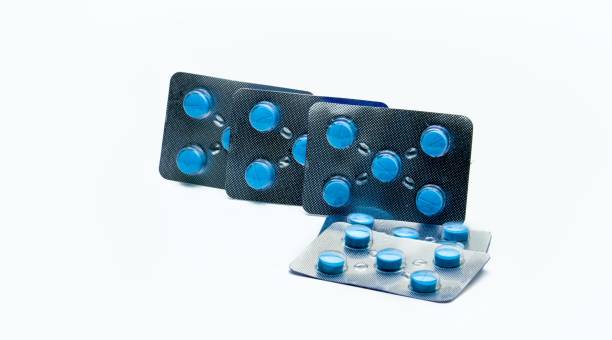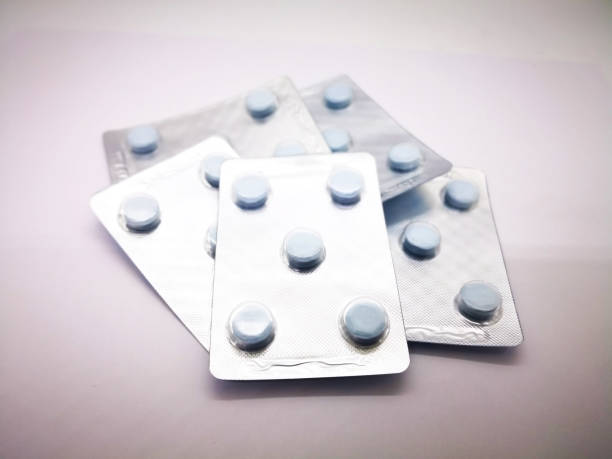
Acyclovir is a prescription medicine that comes in the form of an oral tablet, capsule, suspension, buccal tablet topical cream, and ointment. Additionally, intravenous Acyclovir is also available which should only be administered by a healthcare professional. It can also be used with other medications as a part of combination therapy.
Why is Acyclovir Prescribed?
Acyclovir is an antiviral medication that is used to treat viral infections caused by herpes viruses including genital herpes, shingles, cold sores, and chickenpox. It is also prescribed to prevent recurrent herpes. Acyclovir buccal tablets (Sitavig) are intended to treat cold sores on the lips.
How Does Acyclovir Antiviral Drug Work?
Acyclovir is not a cure for herpes infections however it effectively eases symptoms. It slackens the growth and spread of herpes virus in the body. Acyclovir treats the symptoms of herpes virus infections. Once you acquire herpes infection, the herpes virus stays in your body for a longer period and may cause symptoms in the future.
Before Taking Acyclovir for Genital Herpes or Other Herpes Virus Infections
Allergic reaction:
It is not advised to take this drug if you are allergic to Acyclovir, Valacyclovir, or any other ingredient of the drug. Do not take Acyclovir buccal tablets if you are allergic to milk proteins. Your doctor should be aware if you are allergic to any medication, food, or other ingredient.
Medical Conditions and Medications:
Inform your healthcare provider about your medical history, if you have or ever had kidney disease or a weak immune system (because of certain health conditions or using certain medicines. Tell your doctor about any prescription or over-the-counter medicines or herbal supplements you are taking.
Tell your healthcare provider that you are taking Acyclovir before getting any vaccination or immunizations such as a vaccine against varicella virus.
Pregnancy and Breastfeeding:
Acyclovir is not know to cause any birth defects to fetus. If you have a genital lesion while giving birth, a herpes infection can be transferred to your newborn during childbirth. If you are suffering from genital herpes during pregnancy, it is extremely important to prevent herpes lesions before childbirth. It is advised to take your medicine as recommended to control the infection. This drug should only used in pregnant women if the benefits outweigh the risks to the fetus.
Acyclovir may pass into the breast milk. Ask your healthcare provider about any associated risk factors if you are breastfeeding as it may not be safe to breastfeed your baby while taking Acyclovir.
How to Take Acyclovir Properly?

Acyclovir dosage depends on the body weight of the patient, particularly in teenagers and children). Your doctor may modify the dosage if you gain or lose weight. Also, Acyclovir medication is not prescribed to children below 2 years of age.
Make sure you read and follow the directions on your prescription label carefully. Use your Acyclovir medication exactly as prescribed by your doctor. Also, read the instructions for use provided with the medicine and follow the instructions. If you do not understand anything ask your doctor or pharmacist.
Start taking Acyclovir medication immediately after you experience initial symptoms (burning, tingling, and blisters). If you have cold sores, start taking buccal tablets as soon as possible once you see the symptoms of a cold sore.
Acyclovir tablets and capsules:
Usually, it is recommended to take Acyclovir tablets and capsules orally by mouth with or without a meal as suggested by your doctor. Swallow the oral capsule or tablet whole with a full glass of water.
Acyclovir oral suspension:
Always shake the bottle well every time you use it. Do not use your regular kitchen spoons to measure the dose. Make sure you use the measuring device or syringe that comes with the medicine to measure accurate doses.
Acyclovir buccal tablets:
Do not suck, chew or crush the buccal tablet. Put the flat side of the tablet against the upper gum on the same side as the cold sore. Let the tablet dissolve throughout the day. You can normally eat and drink while the tablet is inside the mouth. Never give the buccal tablet to younger children as there is a risk of choking.
Drink plenty of water while you are taking Acyclovir Treatment to keep yourself hydrated and make sure your kidneys work well. Herpes viruses cause lesions that should be left clean and dry to encourage healing. Wearing loose and comfortable clothes can help you avoid irritation and discomfort of lesions.
Take Acyclovir for the prescribed period even if the symptoms get better after a few doses. Do not skip doses as it may allow the virus to become resistant to this medicine. Do not share your medicine with others. Store this medicine at room temperature and avoid placing it in heated or moist places.
Missed Dose
In case, you forget to take a dose, take it immediately as you realize. If you realize the missed dose when it’s time for your next dose, skip the missed dose and go with your next scheduled dose. Do not take two doses to make up for the missed dose.
Overdose
If someone mistakenly overdoses on this drug and has adverse effects, try to find emergency medical attention or you can call the poison control center for help.
What to Avoid While Taking Acyclovir Treatment?

Herpes virus infections are spreadable and you can transmit the infection to other people even while getting Acyclovir treatment. Make sure to avoid direct contact with other people. Do not touch the infected area and then touch your eyes or other body parts. Frequently wash your hands to avoid spreading the infection to other people.
Taking Acyclovir treatment may not prevent you from spreading genital herpes to your partner. Avoid having sexual contact after you notice the first symptoms of an outbreak or while you have lesions. Genital herpes may be transmitted through viral shedding from your skin even if you do not experience symptoms.
If you are using buccal tablets do not brush your teeth, and wear an upper denture while the tablet is placed inside the mouth. You can gently rinse your mouth. To prevent dry mouth drink adequate water and liquids.
If you regularly drink alcohol, try to avoid or limit alcohol consumption until the infection goes away. Although alcohol does not interfere with Acyclovir, however avoiding it encourages healing and your symptoms will improve faster.
Possible Side Effects of Acyclovir
Usually, Acyclovir is a safe drug without any significant side effects. Only a few patients have reported mild side effects of Acyclovir which does not require treatment.
Allergy warnings:
Do not take this drug if you are allergic to it or ever had allergic reactions to this medicine. The symptoms of an allergic reaction include hives, rash, trouble breathing, or swelling of your tongue or throat.
Side effects:
Usually, side effects occur when you do not take this medicine as directed by your doctor. The more common side effects of oral Acyclovir include mild skin pain, rash, itching, nausea, vomiting, headache, diarrhea, and mouth pain (while using a buccal tablet).
Serious side effects of Acyclovir are very rare which include low blood pressure, chest pain, reduced red or white blood cells, reduced blood platelets confusion, hallucinations, aggressive behavior, and signs of a kidney problem.
Clinical Monitoring While Taking Acyclovir
Your healthcare provider will ask you to monitor some health problems. It helps ensure that the medicine is working well for you and you can safely continue with it.
Kidney function:
Your doctor will ask you for blood tests to determine if your kidneys are functioning properly. In case you have existing kidney problems (older adults) or the tests show that your kidneys are not functioning well, your doctor will modify the dose accordingly.
Mental health and behavioral issues:
Your healthcare professional will ask you if you have noticed any uncommon changes in your mood or behavior. Improper use of this drug may cause mental health or behavior issues.
Possible Drug Interactions

Drug interactions may interfere with how well this medicine works against the infection or put you at risk of adverse reactions. Do not take any other drugs without consulting your healthcare professional. Do not change the dosage or stop taking this drug until you are asked to do so.
The medicines used to treat kidney disease such as nonsteroidal anti-inflammatory drugs (Naproxen and Ibuprofen) can interact with Acyclovir. Valacyclovir and Acyclovir are almost similar kinds of drugs so it is not recommended to take these nedicines together. Ask your doctor if you have any questions concerning the drug interactions.
Can Acyclovir Cause High Blood Pressure?
Acyclovir is a safe medicine that efficiently treats herpes infections. Just like any other medication, it may have possible side effects if you do not take it as prescribed by your doctor. Usually, there are mild side effects that get better without a treatment. Always discuss with your doctor about the advantages and possible side effects of medication before taking the drug.
